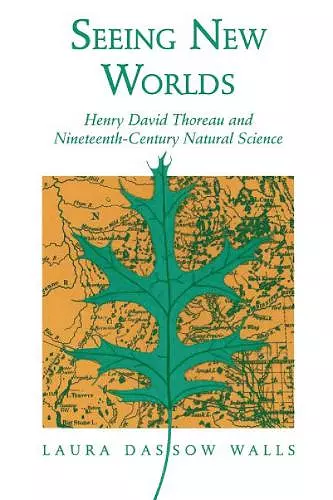Seeing New Worlds
Henry David Thoreau and Nineteenth-century Natural Science
Format:Paperback
Publisher:University of Wisconsin Press
Published:31st Oct '95
Should be back in stock very soon

Thoreau was a poet, a naturalist, a major American writer. Was he also a scientist? He was, Laura Dassow Walls suggests. Her book, the first to consider Thoreau as a serious and committed scientist, will change the way we understand his accomplishment and the place of science in American culture.
Walls reveals that the scientific texts of Thoreau’s day deeply influenced his best work, from Walden to the Journal to the late natural history essays. Here we see how, just when literature and science were splitting into the “two cultures” we know now, Thoreau attempted to heal the growing rift. Walls shows how his commitment to Alexander von Humboldt’s scientific approach resulted in not only his “marriage” of poetry and science but also his distinctively patterned nature studies. In the first critical study of his “The Dispersion of Seeds” since its publication in 1993, she exposes evidence that Thoreau was using Darwinian modes of reasoning years before the appearance of Origin of Species.
This book offers a powerful argument against the critical tradition that opposes a dry, mechanistic science to a warm, “organic” Romanticism. Instead, Thoreau’s experience reveals the complex interaction between Romanticism and the dynamic, law-seeking science of its day. Drawing on recent work in the theory and philosophy of science as well as literary history and theory, Seeing New Worlds bridges today’s “two cultures” in hopes of stimulating a fuller consideration of representations of nature.
“An excellent book, well-written, even eloquent. Walls is clearly the first scholar to read Thoreau thoroughly in the context both of the science of his own day and of the theory and philosophy of science in our day, in such a way as profoundly to call into question all previous work in this area and to open up questions about the very nature of science and scientific truth.” —Robert Sattelmeyer, Georgia State University
ISBN: 9780299147440
Dimensions: 227mm x 151mm x 17mm
Weight: 440g
232 pages